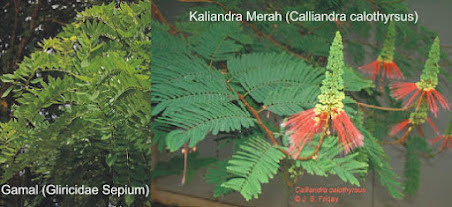In countries with four seasons, in winter, plants grow very slowly and even stop growing, so hay is used as a feed supplement, while in Indonesia in the dry season, grass is also limited forage, so to maintain livestock performance, additional feed such as hay should be used. By making hay, animal feed becomes durable so that it can be used as a source of feed when supply is reduced. Dry and compacted conditions make hay easy to store and use. In breeding-oriented farms, the quality of feed is usually not as good as in fattening-oriented farms. Breeding duration is longer than fattening is one of these considerations, because feed is the highest cost component in livestock business.
Due to various factors such as geography and labor conditions, a number of countries even have to import animal feed, especially the hay. The United States, for example, exports no less than 700,000 tons of hay annually to Japan, Taiwan and Korea. Leaves of leguminoceae such as indigofera, calliandra and gliricidia are potential sources of ruminant feed for the production of hay. Besides being planted specifically for the production of hay, these legumes can also be used as energy plantation or biomass plantation. The integration of energy plantation or biomass plantation with livestock businesses, especially the production of animal feed in the form of hay product, is a very interesting combination.
In addition to the export market, the domestic or local market is no less interesting. Areas with large areas of land can be used as centers for hay production, which is then distributed to a number of ruminant livestock centers. Hay is dry and compacted (densified) so that it is easy to distribute even over long distances. This is different from silage, which is wet, so it cannot be compacted like the hay. With the fulfillment of feed, the performance of ruminant livestock business can be maintained. In energy plantation or biomass plantation, wood can be processed into energy products such as wood chips, wood pellets, wood briquettes and sawdust charcoal briquettes, or non-energy products such as particle board. That means all parts of the tree can be utilized.







